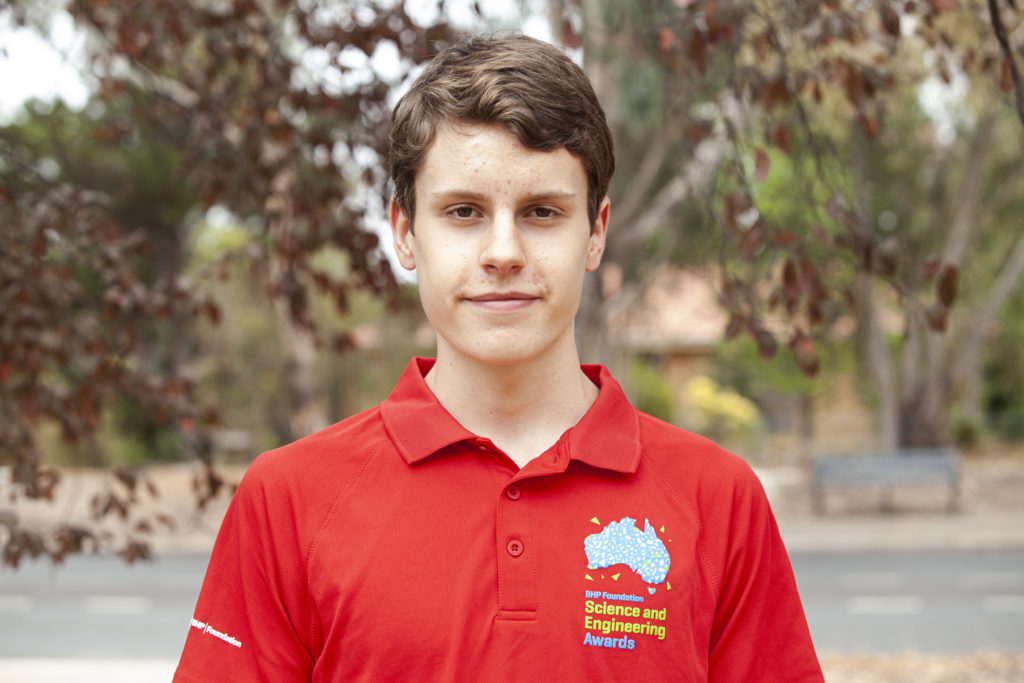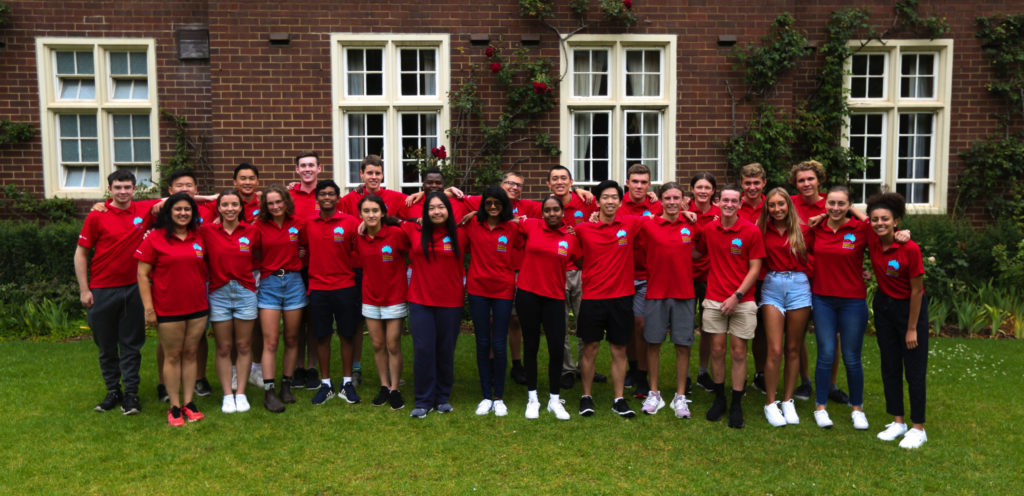
Oliver Balfour shares his advice to other STEM students.
As a BHP Foundation Science and Engineering Awards finalist from 2019 and 2020, Oliver Balfour has some sound advice for STEM students. “Grit and determination is far more important than being good at science,” he says. And he would know. Oliver is finishing his last year of high school in 2020, during a global pandemic.
Oliver credits his Awards experiences for giving him the confidence to pursue his goal of becoming a software engineer. And he is well on his way.
“To me, science is the pursuit of understanding the world around us, through the creation of elaborate, logically consistent models. Then, engineering is the use of these models to create practical devices which improve people’s quality of life,” he says.
Oliver shares more about finding his love for engineering and has some valuable advice for other STEM (science, technology, engineering and mathematics) students.
Applying experience to real-world situations
For the 2019 BHP Foundation Science and Engineering Awards, Oliver was a finalist for his Artificial Intelligence (AI) project. But he said the project was all theoretical and had no real-world application. So, in 2020, he decided to use some new skills to develop something that could make a difference.
His prize-winning 2020 project was an algorithm capable of automatically diagnosing diabetic retinopathy (a diabetes complication affecting the eyes).
“I had heard of artificial neural networks being used for breast cancer diagnosis and decided writing an algorithm to diagnose a disease could be very impactful,” Oliver says.
“Ultimately, I settled on diabetic retinopathy. I chose this because other researchers had kindly released datasets of images associated with diagnoses for my AI to learn from. Also, I had never done computer vision before and was excited to try it.
“But even with my existing AI knowledge from my prior projects, it was a very difficult project to start. It took about three months before I finally felt comfortable that I knew what I was doing.
Also, it took a great deal of determination to pursue the project. In my case, the design squiggle really applies. It helped me to experiment with ideas and choose the right direction for me when I was ready,” he says.

Camp team photo of the 2020 Awards finalists.
Oliver’s project advice for STEM students
1. Try something ambitious!
If you choose a project you know you can achieve, you’re not gaining anything long term. Irrespective of whether you are selected as a finalist, the most important thing you can develop from this opportunity is to improve your mindset. If you motivate yourself to pull off something you did not think possible, it will improve your academic self-confidence and motivate you to do better at school and in the workforce.
2. Play to your strengths and to what interests you
If you’re good at maths, be rigorous with your statistics as this will set you apart. If you enjoy gardening, do a biology project as you’ll find it much easier to motivate yourself to keep going. Don’t choose a subject area because it sounds impressive or prestigious because you might grow to resent it and lack motivation.
3. Explore knowledge areas not usually taught at a high school level
This will set your project apart and help develop independent research skills.
4. Consider the wider impact of your ideas
If you’re studying gamma ray absorption, you could talk about its application in medical imaging. If you’re studying biodegradable plastics, discuss how your work could reduce the amount of rubbish in landfill. Understand that at this high level, everybody has great science and the main differentiator is how well its potential impact is communicated. If you want to become a scientist, this is exactly what research grants are about, so it’s a valuable skill to learn.
Building confidence to succeed
Being a finalist in the Awards gave Oliver access to a number of opportunities including internships usually reserved for PhD students, mentoring from science professors and the opportunity to talk on local radio. But the best thing the Awards gave Oliver was more confidence in his abilities.
“I proved to myself that I can accomplish things that seem insurmountable if I simply work hard and don’t give up. In my case, I did three science fair projects before I started doing very well and there were many pitfalls along the way,” Oliver says.
“Although there’s no advice that can apply to every possible issue you encounter, recognise that having grit and determination is far more important than being ‘good at science’, which is subjective at best.
“When you realise you’ve taken a wrong turn, acknowledge you now know better and try to fix it. Don’t give up. Every mistake is a learning experience, so account for setbacks when you start out and don’t be hard on yourself.”
The BHP Foundation Science and Engineering Awards are a partnership between CSIRO, BHP Foundation and the Australian Science Teachers Association. The awards featured an impressive line-up of Australia’s best STEM talent, including teachers and school-aged researchers and innovators, set to excel in their careers and become the leaders of tomorrow.


26th October 2020 at 2:45 pm
Splendid Oliver. Good on you!
Very best wishes,
John
26th October 2020 at 12:51 pm
Is it done from retinal photographs?
It would be grand if it could be from some less expensive source, because the machinery needed to take the photo is so expensive. So this is your next job, Oliver.
Designing a lens system that can be placed on the cornea [after anaesthetising it suitably with drops] which will enable a good photo from a phone!! Then someone in the supermarket car-park could look easily at a large number of people to find those un-diagnosed diabetics who could go blind at any moment using your algorithm. .